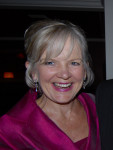Call for co-scientists in multi family therapy group research for adults
Call for co-scientists in multi family therapy group research for adults
Starting treatment for Anorexia Nervosa in my 30s, after developing the illness as a child, made for a tough recovery path. Illness effects linger, especially with interpersonal relationships.
I understand why Professor Mary Tantillo calls eating disorders the ‘diseases of disconnection’. Some relationships can be saved and even enriched but others, especially when the eating disorder has had years to embed itself in thoughts and behaviours, can be beyond salvageable.
Gradual estrangement from family of origin, and destruction of multiple marriages has been part of the cost of my eating disorder. In my 60s, I love life but continue to have difficulty allowing myself to feel at peace in a safe, secure and stable intimate relationship. I live in hope of finding answers, however, and am excited by Mary’s persistence to address this difficult aspect of eating disorder treatment. The thing is, to do so, she needs your help. Your experience counts!
If aged between 18 and 40, and living in the United States, I would be heading for New York right now, with my hand up, to be a co-scientist in Mary’s latest research project.
“Reconnecting for Recovery” multifamily therapy group research study
Mary has got funding through the Hilda and Preston Davis Foundation to pilot a Multifamily Therapy Group for young adults with Anorexia Nervosa (AN) or related eating disorders marked by restrictive eating and weight loss. For this particular pilot, the participant (you) may experience binge eating and/or purging episodes but may not have current Binge Eating Disorder or Bulimia Nervosa. That is a future study:).
Mary has been designing this Multifamily Therapy Group approach in partnership with patients and families over the past decade. She explains:
I have named the approach “Reconnecting for Recovery” because of its relational, emotional and motivational threads. I am very excited about this pilot because the participants in the pilot will act as my co-scientists and help evaluate the group and will also complete outcome measures that will assess upstream processes and downstream outcomes related to AN.
See this flyer (RSRB 57060 Flyer) for recruitment information (and there is a tear off flyer here RSRB 57060 Flyer TearOff (1)). In total Mary seeks 10 young adults (ages 18-40) patients and at least one (and up to four) of their respective family members of origin or choice (e.g., friend, mentor, partner etc.) to commit to attending the MFTG 16-week group cycle. Each group will contain five young adults and their families. Mary explains:
We will recruit patients through the summer and possibly into the winter (or longer) until we can get 10 families. Participants must not be pregnant, must be medically stable, and have a BMI of > 16.
The intervention is free and families receive movie vouchers at the end of group and at the 6 month follow-up. They also receive validated parking vouchers.
If you have any questions, Mary and her team would love to hear from you, and they encourage you to post/pass this information on to others.
- If you think you may benefit, or know someone who may benefit, from this Multifamily Therapy Group, contact Mary’s study coordinator, Judy Brasch (or Mary).
- Judy’s phone number is 585-275-6629 and this is the website.
- The phone is also noted on the attached flyers. Cell: 585-703-3403
- Email: tantillo@rochester.rr.com
 World Eating Disorders Action Day
World Eating Disorders Action Day
One way to help shine a light on the great work of researchers like Mary, is to support World Eating Disorders Action Day. Be sure to follow along on twitter @WorldEDDay and hashtag #WeDoAct, #WorldEDActionDay, @WorldEatingDisordersAction on Instagram and World Eating Disorders Action Day on Facebook.






